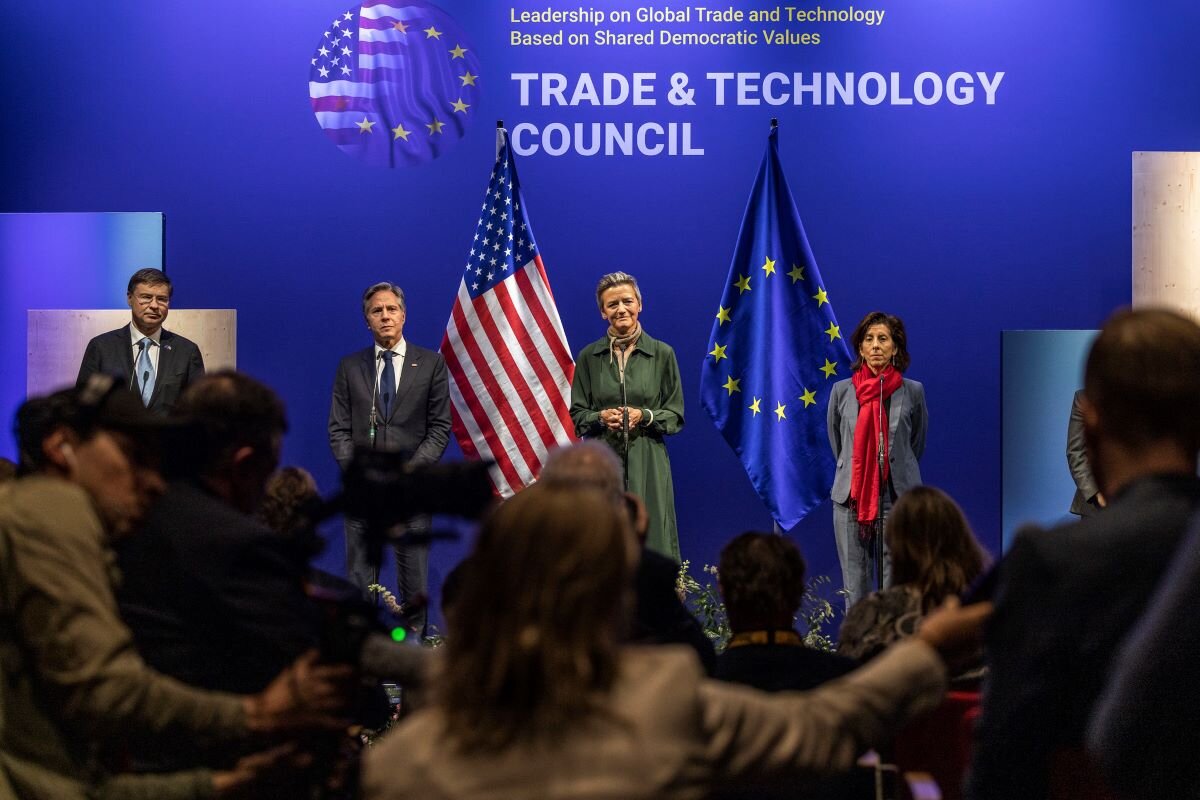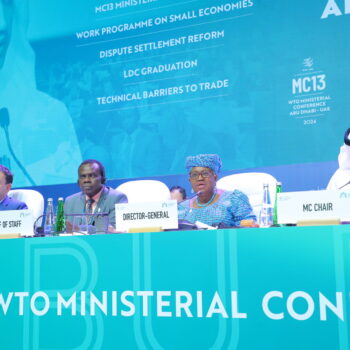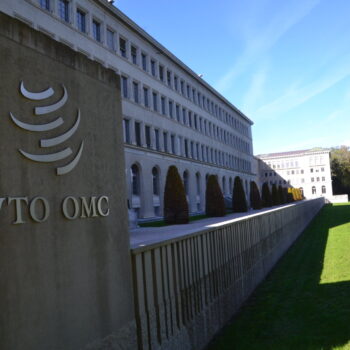- Today, the EU and US have agreed to push for tangible outcomes on climate and trade before EU and US elections in 2024. The launch of a work programme for the Transatlantic Initiative on Sustainable Trade (TIST) promises encouraging deliverables this year.
- The TIST’s work programme promises to carry forward momentum on EU-US relations. Its clear set of policy proposals show a maturing of the EU-US Trade and Technology Council. This is positive given recent tensions over the US Inflation Reduction Act and delays to EU-US agreements on critical minerals and the Global Arrangement on Steel and Aluminium (GSA).
- EU-US make inroads into a transatlantic marketplace for clean tech and climate-friendly goods. While the TIST partially builds on existing EU-US conversations – such as on embedded carbon methodologies or resilience of critical supply chains – it is the clearest EU-US initiative yet on making trade work for climate.
- Its focus on issues like aligning green standards and public procurement rules to help accelerate the deployment of climate-friendly goods could become a benchmark for how trade cooperation can support global climate action, with the additional inclusion of EU-US dialogue in important multilateral fora and the new Coalition of Trade Ministers on Climate.
EU-US Trade and Technology Council 4th Meeting, Lulea, Sweden
The fourth Ministerial meeting of the EU-US Trade and Technology Council (TTC) took place in Luleå, Sweden, on 31 May 2023.
On climate and trade, the most significant outcome was the launch of a work programme for the Transatlantic Initiative on Sustainable Trade (TIST).
The aim of the TIST is to build a structured and long-lasting bilateral engagement to promote a more integrated and resilient transatlantic marketplace for clean tech and green goods. This will help accelerate the transition to a climate neutral, nature positive and circular economy on both sides of the Atlantic.
The first deliverables under the TIST were announced at this fourth TTC meeting. Deliverables came under the following headings:
1. A sustainable business environment for an integrated transatlantic marketplace
By far the most developed. Includes a wide variety of measures aiming to align common standards for clean technologies and climate-friendly goods like green materials, as well as leveraging public procurement across the Atlantic to kick-start a marketplace for such products.
2. Resilient and sustainable supply chains for the clean economy
It builds on existing cooperation around supply chain transparency and traceability, early warning mechanisms and due diligence standards. This area is of increasing importance in the wake of industrial policies and the de-risking of critical value chains, but has the biggest gap in the absence of an EU-US deal over Critical Minerals.
3. Benefits for workers and consumers in the green economy
Includes commitments to support social dialogue with trade unions and other stakeholders in line with US discourse on a ‘worker-centred trade policy’.
4. A global path for the green transition
For the first time EU-US are really thinking about their common role in shaping the global trade and climate agenda in a constructive way. Lots of potential for further dialogue in multilateral fora including positively through the new Coalition of Trade Ministers on Climate.
The second major milestone will be the next TTC Ministerial meeting, where an additional set of TIST deliverables will be presented, and new initiatives launched. With EU and US elections in 2024, this will be a key moment for both sides to demonstrate the TTC can deliver lasting cooperation on climate.
Quotes
Ignacio Arroniz E3G Researcher said:
“The EU and US are demonstrating they can work together on climate. Given how integrated their markets are, agreeing on common standards for clean tech and green goods will help both transition faster to net zero. The next step should be to jointly leverage this common marketplace to help third countries transition faster as well. A priority could be assisting CRM producers to build their own clean tech industries to make the most of their mineral reserves.”
Max Gruenig, E3G Senior Policy Advisor said:
“Collaboration and coordination between the EU and US around cleantech, climate services and innovation carries the potential to enable a faster and more efficient transition to net zero, both for the two blocs, but also for the rest of the world. The new Transatlantic Initiative on Sustainable Trade needs to be about removing barriers and frictions, not about keeping others at bay. Competition and trade are healthy ingredients of a diverse and sustainable future.”
Available for comment
Max Gruenig, Senior Policy Advisor (US-EU Climate Diplomacy), US time zone
+1-202-550-9072, max.gruenig@e3g.org
Johanna Lehne, Programme Leader (Industry Transition & Trade), UK time zone
+44 (0) 770 848 6383, johanna.lehne@e3g.org
Notes to Editors
- E3G is an independent climate change think tank with a global outlook. We work on the frontier of the climate landscape, tackling the barriers and advancing the solutions to a safe climate. Our goal is to translate climate politics, economics and policies into action. About – E3G
- For further enquiries email press@e3g.org or phone +44 (0)7783 787 863


